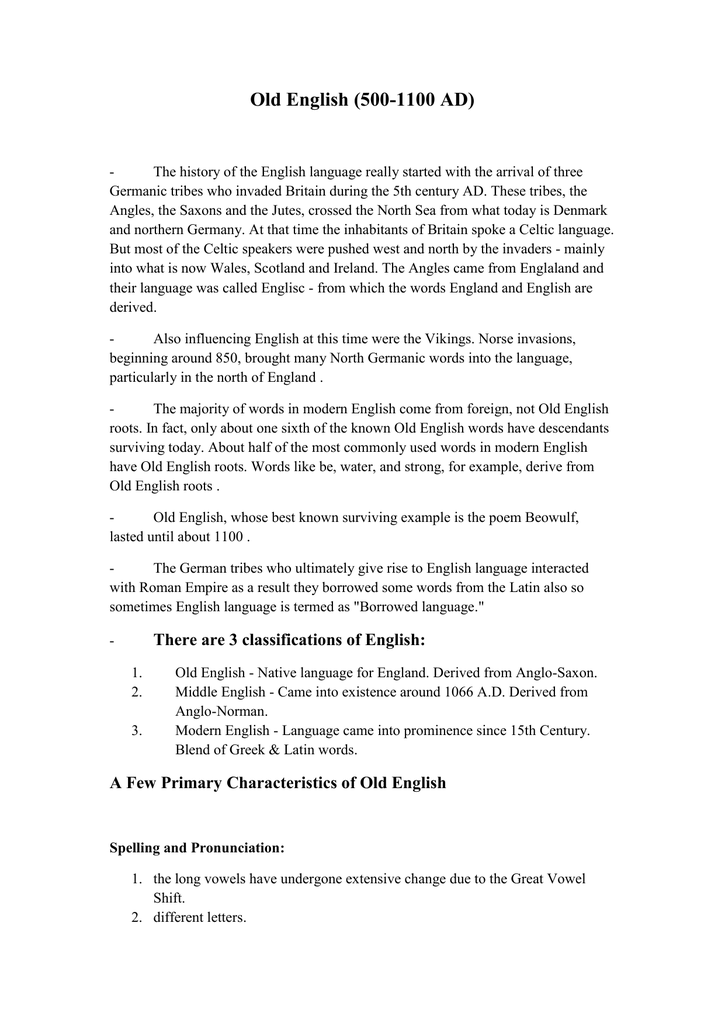

Æstel, noun, m., ?pointer used to keep one’s place as one reads (4 occurrences) Æscplega, noun, m., spear-fight, battle (hapax legomenon, Judith) Ærgod, adj., good from old times (5 occurrences, only in Beowulf) Ærgewinn, noun, n., ancient hostility (hapax legomenon, The Dream of the Rood) Ælfscyne, adj., beautiful as a fairy (3 occurrences, poet.) Æfterfylgan, verb, to follow, to come after MnE to stir)Īwiht, noun, n., anything (cp. MnG einfältig)Īnfloga, noun, m., solitary flier (hapax legomenon, The Seafarer)Īnhaga, noun, m., solitary one, one who dwells alone (poet.)Īr, noun, f, honour, mercy, favour, prosperityĪstyrian, verb, to remove, to move (cp.

MnG antworten)Īnfeald, adj., simple, onefold (cp. MnG Antlitz)Īndwyrdan, verb, to answer (cp. MnG Widersacher)Īndwlita, noun, m., face (cp. Languages are abbreviated as follows: OE = Old English MnE = Modern English MnG = Modern German MnDu = Modern Dutch MnDa = Modern Danish MnScots = Modern Scots MnSw = Modern Swedish L = Latin MedL = Medieval Latin MedGr = Medieval Greek.Ībutan, adv., about, around Īcennan, verb, bring forth, give birth toĪglæca, noun, m., monster, combatant, the terrible one (poet.) Īndsaca, noun, m., enemy, adversary (cp. Last updated (soundfiles and pronunciation page added)
OLD ENGLISH SENTENCES FREE
If you have any corrections, comments, or questions, please feel free to contact me by emailing Rauer, University of St Andrews There are no plans for moving this page to another address. I try to keep this webpage as stable as possible the insertion of updates and corrections is limited to one week during the summer, when students are unlikely to be using it formally.
OLD ENGLISH SENTENCES PLUS
More soundfiles of Old English texts being read aloud, plus the pronunciation rules, can be found on this page. I have provided soundfiles for a few representative words click on those to hear how the words are pronounced. Tests can be made easier or harder, depending on whether the examined translation is from Old English to Modern English, or vice versa, or both, and depending on how much time students are allowed to memorise the vocabulary.

It can be used in undergraduate or postgraduate Old English teaching, either for compulsory or optional assessments, or just for background. This list of Old English Core Vocabulary is intended as a teaching aid: the idea is that students learn this list of words by heart. A word signalled as ‘hapax legomenon’ is found only once in the entire Old English corpus, and was possibly coined for the passage in question. The cognates in a number of related languages are intended to make memorisation of the words easier. The reference ‘poet.’ signals predominant usage of a word in poetry. Some of the words are among the most frequent in Old English literature some are of particular importance on account of their literary or linguistic usage. The list below presents some 500 Old English words which could be regarded as literary core vocabulary.


 0 kommentar(er)
0 kommentar(er)
